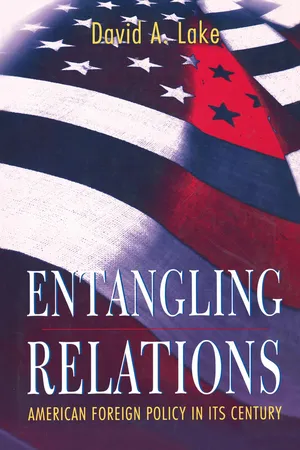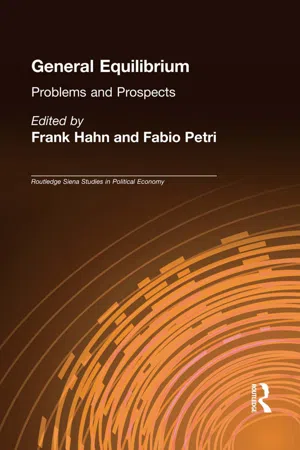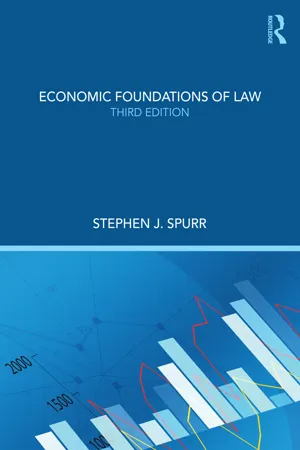Contract Theory
Contract theory in economics examines the design and implementation of agreements between parties to achieve mutually beneficial outcomes. It explores how contracts can align incentives, mitigate risks, and facilitate cooperation in various settings, such as employment relationships, procurement, and public-private partnerships. The theory considers issues like information asymmetry, moral hazard, and adverse selection to inform optimal contract design.
5 Key excerpts on "Contract Theory"
- eBook - ePub
Economic Analysis of Contract Law
Incomplete Contracts and Asymmetric Information
- Sugata Bag(Author)
- 2018(Publication Date)
- Palgrave Macmillan(Publisher)
...The bargainers may have to engage in costly disputes to signal credibly the strength of their bargaining positions. The laws of contract can be useful instruments in this kind of situation by protecting the interests of each party. Contract Theory is the body of legal thought that inquires into the normative or conceptual problems in contract law. The central problem of Contract Theory is: Why are contracts enforced? The answer lies in the economic benefits of enforcing the bargains. The foundations of Contract Theory lies on the principle of Pareto-efficiency, where the Pareto-optimum outcome is achieved. Subsequent chapters will deal with the different aspects of each of the contract laws and their performances under a set of varied market structures.Notes1.Delegation may be motivated either by the possibility of benefitting from some increasing returns associated with the division of the task, or by the principal’s lack of time or ability to undertake the task by him or herself, or by any other form of the principal’s bounded rationality when faced with a complex problem.2.A specific investment is one that is more valuable when applied to a specific pair of trading partners than it is to trade with an alternative buyer or seller.3.A further (and related) matter is that the nature of the relationship between the parties is different from the sale of goods contract and is governed by impersonal market forces where the “identity” of the buyer and seller is not an issue; for contracts with significant transaction-specific reliance, one or both parties become “locked-in” and identity is important—i.e. they can be described as personal or relational transactions/contracts.4.A first-best (or a Pareto-efficient complete-contingent state) contract is one that cannot be modified to raise the expected utility of both of the parties...
- eBook - ePub
Entangling Relations
American Foreign Policy in Its Century
- David A. Lake(Author)
- 2020(Publication Date)
- Princeton University Press(Publisher)
...Theories of relational contracting have received substantial but by no means unequivocal empirical support. They are now sufficiently accepted in economics to be incorporated into mainstream textbooks. 19 Although first developed in economics, theories of relational contracting actually constitute a more general approach to understanding social organization. 20 This approach was first applied to international relations by Robert Keohane in his theory of international regimes. 21 It has now been extended to explain a range of specific issues, including trade institutions, colonial investments, and the collapse of the Soviet Union. 22 The approach is highly suggestive for the kinds of comparative analyses of policy now lacking in the discipline of international relations. In this section, I develop a theory of relational contracting tailored to the substance of international security affairs. As we shall see, the optimal relationship is principally a function of joint production economies, the expected costs of opportunism, and governance costs. Assumptions and Limitations In the following theory, I make several assumptions, which I will note here but not defend at length. First, polities are rational and forward-looking. The “rationality” assumption is common in theories of international politics, but it is also frequently criticized. 23 By rationality, I mean only that polities possess transitive preferences and act purposively to achieve their goals. That polities are forward-looking is less controversial, but no less important. By forward-looking, I mean that polities anticipate the reactions of others to their actions, and base their own choices upon these expectations...
- Rianne Appel-Meulenbroek, Vitalija Danivska, Rianne Appel-Meulenbroek, Vitalija Danivska(Authors)
- 2021(Publication Date)
- Routledge(Publisher)
...Especially against this background, the ‘hidden characteristics’ in connection with the internal achievement relations are to be evaluated differently. Irrespective of this, the possible solution mechanisms help to better understand the performance relationship and thus also create a solid foundation for change. It is precisely at this point that agency theory can be expanded to include behavioural economics approaches. 5 Theory relevance to practice In practice, the contracts between the organizational units are mainly based on the exchange contractual relationship against the background of division of labour and task specialization. In general reality, it is not uncommon to observe that the organizational units – at least vis-à-vis the management – act as a maximizer of benefits. However, each function tries to maximize its own goals and thus its own benefit, even contrary to the defined company goals – if applied in an uncoordinated way. Agency theory, however, creates a broad framework of understanding and can thus be used to harmonize objectives. Its application seems to provide useful hints for CREM as well as for the implementation of individual projects such as the redesign of workplaces. It has also been shown that the application and use of the principal-agent theory to solve the organizational problem in real estate management has so far – both in theory and in practice – taken place only to a limited extent. The agency theory is mostly used in the context of external contract constellations and is usually not applied within the company. The transfer of the agency theory to the internal contract constellation provides various possibilities for a better understanding of the internal contractual relationship and for the design of the same...
- eBook - ePub
General Equilibrium
Problems and Prospects
- Frank Hahn, Fabio Petri(Authors)
- 2003(Publication Date)
- Routledge(Publisher)
...In the words of Holmström (1982), “Competition among agents…has merit solely as a device to extract information optimally.” If Holmström is right - and both game theoretic modeling and practical experience suggest that he is - the defense of competitive markets in neoclassical economics must be one of the all-time great intellectual ironies. Since Adam Smith supporters of the market system have defended markets on the grounds that they allocate goods and services efficiently. Much to the consternation of those who take empirical facts seriously, the estimation of the ““Harberger triangles” that represent the losses from misallocation, monopoly, tariffs, quotas and the like have little effect on per capita income or the growth rate (Browning, 1997). The real benefits of competition, by contrast, have only come to light with the development of game theoretic models of competitive interactions based on endogenous contract enforcement. 6.5 CONTINGENT RENEWAL CONTRACTS In many exchanges, including those between (a) employer and employee; (b) lender and borrower; and (c) firm and customer, the agent on one side of the exchange gives money (employer, lender, customer), while the agent on the other side of the exchange gives a promise (employee, borrower, firm). The employee promises to work hard, the borrower promises to repay the loan, and the firm promises to provide high-quality products. Rarely, however, is this promise subject to a contract that can be enforced at reasonably low cost. Let us call the player who gives money the principal, and the player who gives promises the agent. In the absence of an enforceable contract, why do agents keep their promises? Perhaps the threat of suing in a court of law is sufficient to secure agent compliance. But generally such threats are not credible. The idea of taking an employee to court for not working hard enough is ludicrous...
- eBook - ePub
- Stephen J. Spurr(Author)
- 2019(Publication Date)
- Routledge(Publisher)
...We will consider this issue in the first part of this chapter, which concerns the formation of contracts. This part considers the economic function of the rule that a promise, to be enforceable, must be supported by “consideration”; the requirement that there be an “offer” and an “acceptance”; whether there is a contract when there has been a unilateral or mutual mistake; unilateral contracts such as rewards; and implied contracts. The next section of this chapter considers various issues concerning the validity and enforceability of contracts: procedural and substantive unconscionability; the economic function of the “holder in due course” rule, a rule that has been challenged as unconscionable; the controversy concerning the widespread use of standard form contracts; issues concerning allocation of risk; and the doctrines of impossibility and frustration of purpose. The last part of the chapter considers issues arising when a party has not kept the promises it made in the contract; this is known as a “breach” of contract. We examine the remedies for breach available to the injured party, money damages, and specific performance. We review the alternative measures of money damages, i.e., the expectation, reliance, and restitution measures; the rule that the breaching party is liable only for foreseeable consequences of the breach; that the plaintiff must mitigate his damages; appropriate damages for lost profits and the problem of the “expansible seller”; the prohibition of penalties, and the distinction between a penalty and liquidated damages. The economic functions of the law of contracts The basic purpose of the law of contracts is to maximize the net benefits of exchange. Contract law allows us to make binding, and therefore credible, legal commitments. Consider what would happen if there were no law of contracts...




